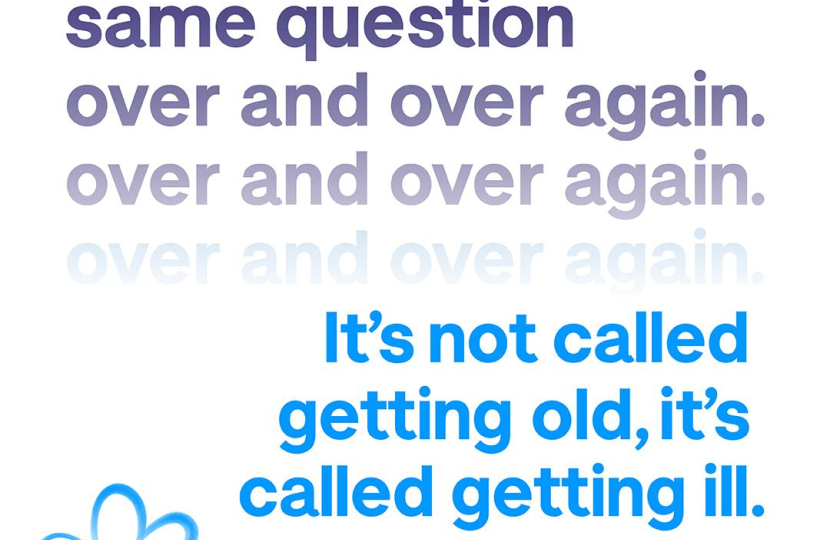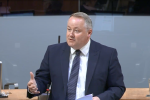
With more than 60% of people with dementia in Wales battling their symptoms for over a year before getting a diagnosis, Clwyd West MS Darren Millar is backing the Alzheimer’s Society Cymru new campaign to encourage people worried about their own or their loved ones’ memory to seek support in getting a diagnosis.
New Alzheimer’s Society research launching Dementia Action Week (16-22 May) reveals confusing dementia symptoms with old age is one of the main reasons for delay in accessing treatment, care and support.
In a bid to tackle the problem, Alzheimer’s Society Cymru have launched a new campaign to encourage people worried about their own or their loved ones’ memory to seek support in getting a diagnosis.
The charity has worked closely with leading clinicians to make the diagnosis process easier, developing a new ‘symptoms checklist’, available on their new online hub, highlighting changes that might be due to dementia.
In an emotional film released on Monday 16 May, the charity shows how the symptoms of dementia, such as asking the same question repeatedly, can easily be dismissed as a sign of old age.
Cheryl James, Area Manager for Alzheimer’s Society Cymru said:
“Asking the same question over and over again is not called getting old, it’s called getting ill. If you’re worried for yourself or someone you love, take the first step this Dementia Action Week – come to Alzheimer’s Society for support.
“The stark findings of our survey released today show just how dangerous it can be to battle dementia symptoms alone and put off getting help.
“Yes, getting a diagnosis can be daunting, but it is worth it. More than nine in 10 people with dementia told us they benefited from getting a diagnosis – it gave them crucial access to treatment, care and support, and precious time to plan for the future.
“With the pandemic causing diagnosis rates to plunge, it’s more important than ever to seek help. You don’t have to face dementia alone, we’re here to support everyone affected.”
Darren said:
”More than 200,000 people will develop dementia this year, the equivalent of one person every three minutes. But with diagnosis rates at a five-year low, tens of thousands of people are now living with undiagnosed dementia without access to the vital care and support that a diagnosis can bring.
“Getting a timely diagnosis is important and will provide people with the information, resources and support needed to navigate this complex illness. I encourage anyone with any concerns either about their own memory or that of a family member to seek help now.”
Dr Jill Rasmussen, the Clinical Representative for Dementia at the Royal College of General Practitioners, said:
“It’s vital for patients, their families and GPs that conversations with the potential for a diagnosis of dementia are timely and effective. The new checklist developed with Alzheimer’s Society is a simple, free tool to help patients and their families clearly communicate their symptoms and concerns during an often time-pressured appointment. This resource could make a real difference in identifying those people who require referral for a more detailed evaluation and diagnosis of their problems. We’re asking anyone who is worried about possible dementia symptoms to use the checklist and share it with their primary care team”.
Support and more information about a diagnosis is just a phone call or a click away. Visit alzheimers.org.uk/memoryloss or call 0333 150 3456 (for Welsh language support call 0330 094 7400).
For callers who do not have English as their language of choice, Alzheimer’s Society can arrange a simultaneous language translation service.
